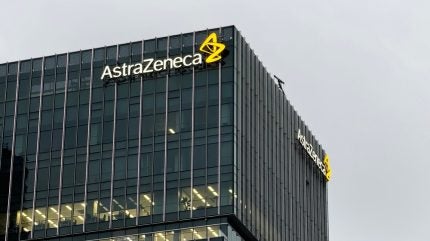
AstraZeneca has added another indication to its blockbuster immunotherapy Imfinzi (durvalumab), gaining European approval to treat a type of bladder cancer.
Imfinzi is now approved to treat adult patients with resectable muscle-invasive bladder cancer (MIBC) in combination with chemotherapy drugs gemcitabine and cisplatin as neoadjuvant treatment, and as a monotherapy after bladder removal surgery.

Discover B2B Marketing That Performs
Combine business intelligence and editorial excellence to reach engaged professionals across 36 leading media platforms.
The approval comes as reports circulate that AstraZeneca CEO Pascal Soriot is considering delisting the company from the London Stock Exchange in favour of a US listing. Although no official decision has been announced, the prospect of such a move has sparked significant concern, given that AstraZeneca is currently the most valuable company in the UK.
The pharmaceutical giant is said to be increasingly frustrated with growing regulatory pressures in the UK. Tensions escalated in late January when the company scrapped a £450m plan to turn its Speke-based facility into a major vaccine hub, after failing to reach an agreement with government ministers over the level of state support.
Data from the Phase III NIAGARA (NCT03732677) trial demonstrated a 32% reduction in the risk of disease progression, recurrence, not undergoing surgery, or death, when compared to surgery alone. Around 67.8% of patients treated with AstraZeneca’s drug were event-free at two years compared to 59.8% in the comparator arm.
Bladder cancer is the ninth most common cancer in the world, with more than 614,000 patients diagnosed each year. Bladder cancer is considered muscle-invasive when there is evidence of the tumour invading the muscle wall of the bladder but no distant metastases. Of those who undergo bladder removal surgery, 50% experience disease recurrence.

US Tariffs are shifting - will you react or anticipate?
Don’t let policy changes catch you off guard. Stay proactive with real-time data and expert analysis.
By GlobalDataImfinzi garnered attention when the data showcased a reduction in the risk of death by 25%, making it the first PD-1/L1 inhibitor to achieve a feat for MIBC patients.
Imfinzi side effects were in line with expectations and did not compromise patients’ ability to complete surgery compared to neoadjuvant chemotherapy alone.
The European approval follows a similar decision made by the US Food and Drug Administration (FDA) in March 2025.
Imfinzi is a major revenue driver for AstraZeneca, generating around $4.7bn in sales in 2024. Its European label covers a range of cancers, including lung, biliary tract, and liver, amongst others. With entry to the market, Imfinzi stands alone as the only perioperative immunotherapy for muscle-invasive bladder cancer.
GlobalData’s Pharma Intelligence Center forecasts global sales for the drug to peak in 2030, generating $7bn in revenue.
AstraZeneca is also eying up label expansions for Imfinzi in non-muscle invasive bladder cancer (NMIBC), a larger market given that 70% of new bladder cancer diagnoses come from this segment.
Imfinzi has already demonstrated positive results for this indication in the Phase III POTOMAC trial (NCT03528694). MSD’s Keytruda (pembrolizumab) – the bestselling drug in the world – dominates NMIBC, though Pfizer also has a strong PD-1 candidate in a Phase III trial.




